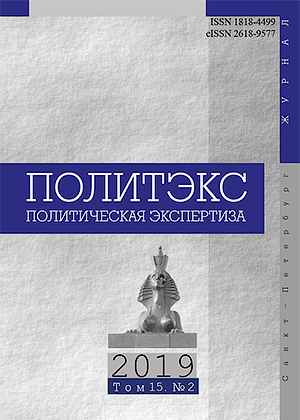Contemporary studies of the political opposition in Russia
DOI:
https://doi.org/10.21638/11701/spbu23.2019.208Abstract
Analysis of Russian researches on the problem of political opposition allows us to identify three main conceptual approaches to the study of political opposition: institutional (political), behavioral (sociological or procedural) and conflict-discursive. The institutional approach focuses on political and legal institutions and phenomena that create opportunities or limitations for the action of political opposition. The object of attention in the “sociological” tradition is social groups, their goals, values, self-identification, their own understanding of political and legal norms, and realizable patterns of behavior. The basis of the conflict-discursive approach is the analysis of political symbols, their means of interpretation, and actors of political (conflict) communication. A narrow and broad understanding of the political opposition has consolidated in Russian political science. With a narrow understanding, we are talking about a political party that has a minority in parliament, and with a broad understanding, we are talking about all participants in the political process, expressing their disagreement with the political course being implemented. A review of Russian studies allowed us to form a list of signs of a political opposition: dissent, a public designation of their disagreement and internal identification, the proposal of an alternative social development project, representation of groups of society, opposition of the authorities, organization, the ability to establish their own rules of the “game”, control over the activities of the authorities, disposition, the struggle for dominant positions in government, the desire for institutionalization, recruitment of counter-elites. A large place in the studies of Russian political scientists is occupied by the theoretical and practical definition of pseudo-opposition — the actors of the political process that imitate opposition activities, but do not meet the basic criteria of the opposition.
Keywords:
political opposition, party, elections, discourse, elite, parliament
Downloads
References
References
Downloads
Published
How to Cite
Issue
Section
License
Articles of "Political Expertise: POLITEX" are open access distributed under the terms of the License Agreement with Saint Petersburg State University, which permits to the authors unrestricted distribution and self-archiving free of charge.




